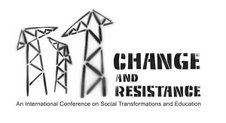Jan Blommaert
Institute of Education, University of London
This paper reports on research conducted in schools in poor townships in the Cape Town area of South Africa. Despite considerable efforts by the post-Apartheid government in building a more democratic education system, the deep inequalities of the past persist. They articulate themselves at a deeper level, however: that of literacy norms and practices and accents in English. Pupils in the township school are taught in English because of a widespread belief in the upwardly mobile potential of that language. The specific variety of English they learn, however, is a strictly local variety that responds to subordinate social class norms, different from the status norms of English. The same goes for their literacy proficiency: we see ‘hetero-graphic’ norms, rather than ‘ortho-graphic’ ones. These sociolinguistic skills, consequently, do not provide any upward mobility and thus perpetuate existing structural inequality.
Subscribe to:
Post Comments (Atom)

No comments:
Post a Comment